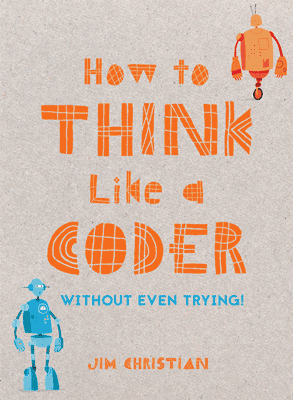The idea of desirable difficulties has always appealed to me. In my teaching I’m partticularly in favour of applying Vygotsky’s concept of the zone of proximal development.
Read MoreQuick looks: Support Not Surveillance, by Dr Mary Bousted
As far as I’m aware no Education Secretary has had the ability or the courage to deal with the teacher recruitment and retention crisis.
Read MoreQuick looks: Tools for Teachers, by Oliver Lovell
Overall the book is a good investment, although I did have some quibbles with it.
Read MoreQuick looks: About Our Schools, by Tim Brighouse and Mick Waters
If you want to see the humble brag elevated to an art form, this is the book for you.
Read MoreQuick look: The self-taught computer scientist
It’s a bit of a tall order, I think, to teach yourself computer science, as opposed to computer programming, because of the need to understand particular concepts.
Read MoreQuick look: Organise Ideas (follow-up)
[When I was a teacher,] as with many of my blog posts these days, my own handouts and lesson summaries were festooned with drawings, diagrams and arrows.
Read MoreQuick look: Organise Ideas
My first impression is that this is a handy toolkit which, once mastered, can be applied in lots of different contexts in any subject.
Read MoreWhat I'm reading: Sort Your Brain Out
One of my first impressions: I like the fact that the book includes relatively recently-acknowledged attributes of the brain, such as neuroplasticity.
Read MoreThumbnail sketch: Teaching in the Online Classroom
I’m always wary of books that are written while the issues that it addresses are new and current.
Read MoreThumbnail sketch: Online learning for dummies
This book addresses online learning from the point of view of the learner, rather than the teacher or the institution
Read MoreThumbnail sketch: The Turning Point
I like where this book is coming from. It regards teachers as experts.
Read MoreBook review: How Charts Lie (short version)
We are presented with charts all the time. But are they telling us how things really are?
Read MoreQuick look: The Meritocracy Trap
We like to believe that meritocracy is a good thing, in that it rewards effort, and acts as a great leveller. Is that actually the case?
Read MoreQuick look: Hello World
Hello World, by Hannah Fry, offers an interesting perspective on some of the problems besetting artificial intelligence algorithms.
Read MoreQuick looks: Critical Media Literacy and Fake News in Post-Truth America
This is a very interesting, thought-provoking and readable book. I’ve only read 25% so far, but it’s looking good so far.
Read MoreTrust Me, I’m Lying
Quick look: Trust Me, I'm Lying
This book lifts the lid on the practices that various media use to promulgate fake news even while appearing to be squeaky clean.
Read MoreComputing books received, by Terry Freedman
Computing books received in March 2019
These books, which I received recently, look interesting, and I’m looking forward to reading and reviewing them. All book links are Amazon affiliate links.
How to think like a coder was shortlisted for an educational writers’ award, which you can read about here: The 2018 Educational Writers Award. I didn’t receive this in March, but have only now started to look at it in depth. I’ve already penned a few notes about it here: Books in Brief: How to think like a coder.
Monitored, which I’ve just started reading, is an examination of big data and surveillance from a Marxist perspective. I haven’t looked at any Marxist literature for a very long time — not since I tried to read Das Kapital when I was 17 (I got as far as page 23, which was 8 pages further than one of my teachers!) — so it’s a completely new perspective for me, which makes this an interesting, if difficult, read.
It covers similar ground to other books on the same subject matter that I have to review — indeed it references some of them — but with a clearly different take on the whole thing. I have to say that from the little I’ve read so far I remain unconvinced, and happily so.
Mission Python has been sent to me by Teach Secondary magazine. As the title suggests, it’s a book that teaches you how to program in Python. All I can say about it so far is that it looks colourful, and that I’m looking forward to reading it.
Books in brief: How to think like a coder
Here’s a quick look at How to think like a coder, by Jim Christian.
Read MoreThumbnail sketch: Bad Choices: How Algorithms Can Help You Think Smarter
Here is a short review of this book about algorithms.
Read MoreBooks in brief: Technically Wrong
This is one of a current spate of books about the in-built bias found in many automated processes.
Read More














